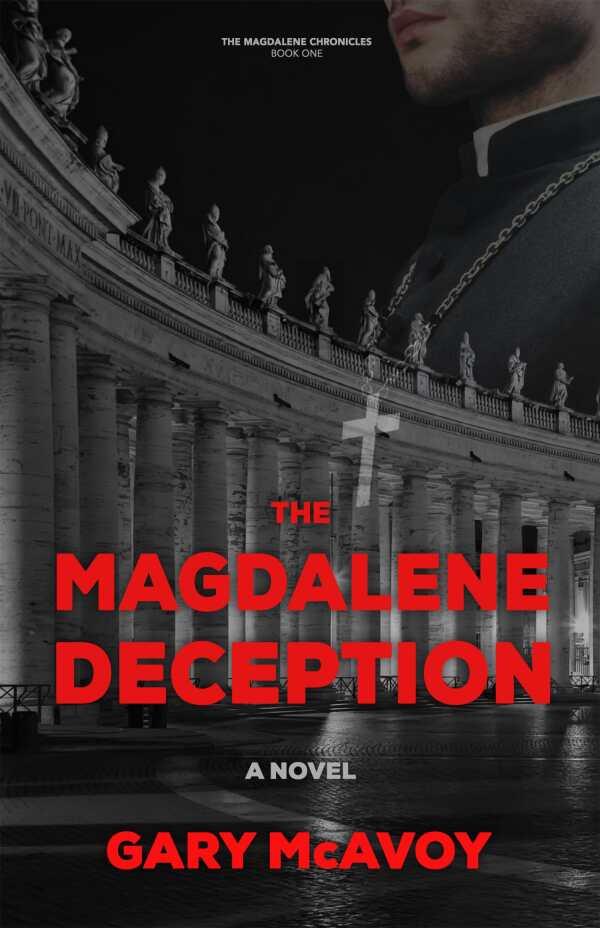The Magdalene Deception
The Magdalene Deception is an impassioned thriller that’s directed by Church mysteries, featuring a crystalline portrait of persistence.
In Gary McAvoy’s steady, Vatican-set thriller, The Magdalene Deception, an attractive duo uncovers a volatile secret.
Michael is a Jesuit priest and a young medievalist who works in the Vatican’s archives as part of its digital preservation project. By accident, he finds hints of blackmail between Bérenger Saunière—a twentieth-century Catholic priest in Rennes-le-Château and the real-life inspiration for conspiracy theories—and the Vatican. Michael’s excitement about finding long-forgotten arcana is shared in tactile terms, and his related work is painstaking.
Meanwhile, Hana, a journalist with Le Monde, tracks a story about the Nazis’ plundered gold. When the inquisitive pair researches both matters to find out the reasons for the blackmail, the stakes intensify. Shadowy adversaries try to intervene, using a mixture of high tech email interceptions and an old fashioned break-in, though these villains are less threatening than they are conniving; their methods are often ineffective. There’s a lengthy windup before the duo’s main discovery, which prompts a rushed final section that culminates in a hostage situation and a brazen rescue.
Informative background about the Vatican’s inner workings and art-filled grounds set the book’s stage while still retaining its mystique, though introductory facts about Rennes-le-Château and other locations are more encyclopedic in their tones. Hierarchical work relationships place Michael in an intriguing position: he was pulled in by a respected cardinal, but is not averse to a little rule-breaking. His colleagues, including a genial Brazilian monk whose speech is lively and a Swiss guard who befriends him, are appealing secondary characters.
Gaps in the plot are often filled by lengthy recollections from its prominent characters. Some critical information arises through fruitful, passive library searches. Because Michael and Hana press through situations with happenstance, and are often an audience for others, their implied cleverness is seldom apparent on its own. Hana’s Le Monde research is left behind for lengthy stretches, and is underdeveloped by the time all of the subplots converge.
Hints of romantic frisson between Michael and Hana pepper the novel, though Michael’s priestly role prevents him from acting on it. In a curious footnote, Michael’s reasons for joining the priesthood have more to do with respect for its historic lineage and positive role in people’s lives than they do with deep-seated faith. Still, the information which he discovers shocks him, while what authority figures choose to do with that information is expected and in keeping with the book’s emphasis on reading history in context and considering its impact on human beings.
The Magdalene Deception is an impassioned thriller that’s directed by Church mysteries. Packed with details on the nature of archival work, it’s also a crystalline portrait of persistence.
Reviewed by
Karen Rigby
Disclosure: This article is not an endorsement, but a review. The publisher of this book provided free copies of the book and paid a small fee to have their book reviewed by a professional reviewer. Foreword Reviews and Clarion Reviews make no guarantee that the publisher will receive a positive review. Foreword Magazine, Inc. is disclosing this in accordance with the Federal Trade Commission’s 16 CFR, Part 255.

